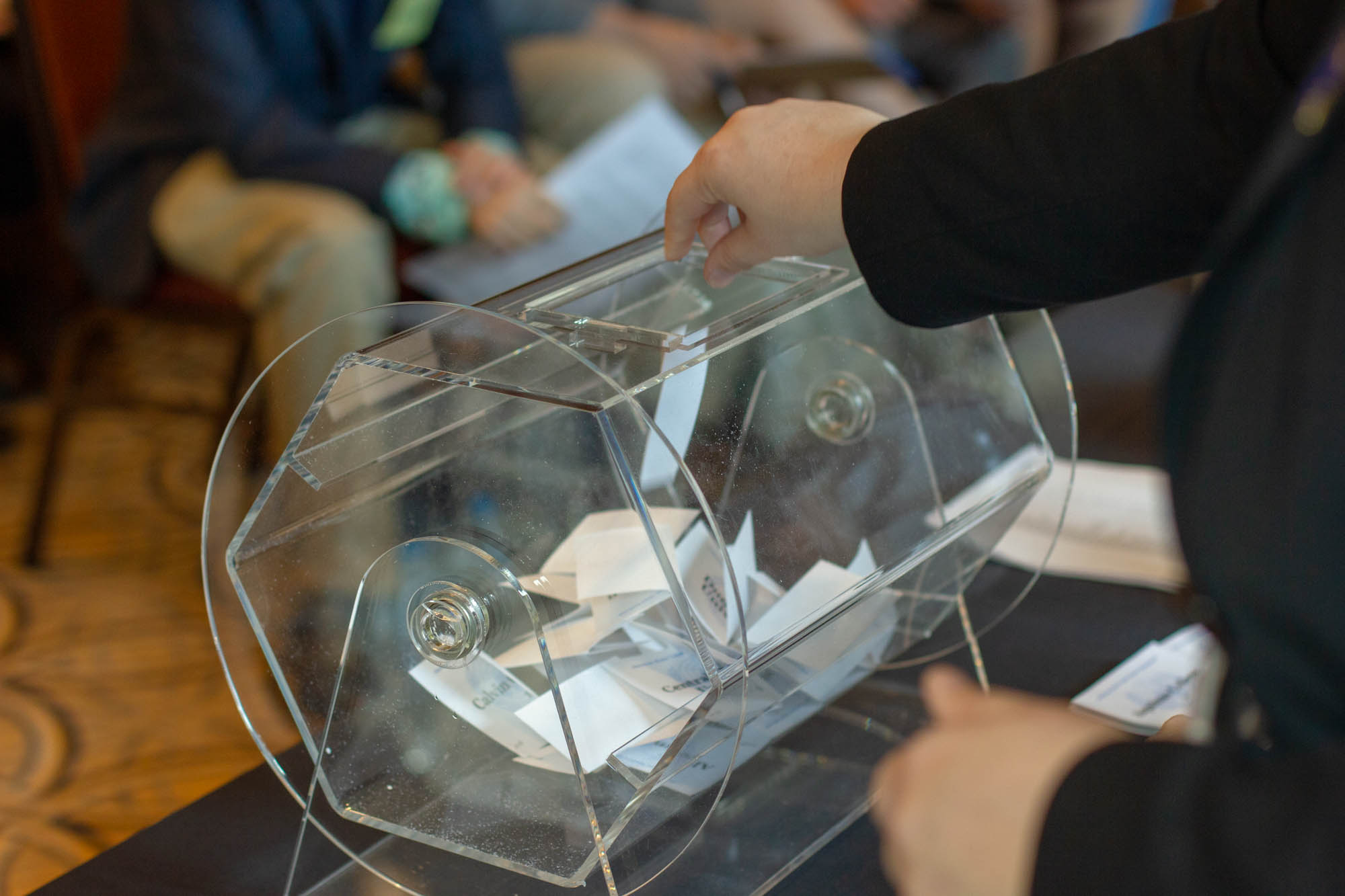
AMUN Country Selection

Each member of the General Assembly shall have one vote.
~UN Charter, Chapter 4, Article 18
The 2019 Conference hasn’t even started, but here at AMUN we are already making our plans for next year. One of the most important things we’re doing right now is selecting the UN bodies we’ll be simulating next year. Schools attending AMUN should also be thinking about their plans for next year, beginning with determining their approach to selecting their country(s).
2020 AMUN Country Assignment Lottery
The first set of country assignments next year will take place at the Country Lottery during AMUN 2019. For each country a school would like to have assigned during the lottery, a non-refundable $100 deposit is due. The names of participating schools will be placed in the lottery drum and selected one at a time, with the school selecting choosing an available country to represent in 2020. Each school that requests one delegation will be entered in the first-round of the lottery; subsequent rounds will be held for schools that reserve more than one delegation.
AMUN’s country assignment philosophy is that group leaders have the best understanding of their group’s ability to represent a certain country in the upcoming year. We believe this works better than the popular practice of conference leaders or staff determining who gets which country. Group leaders, rather than conference staff, are in the best position to know how many students are likely to be part of the next year’s group and those students’ level of experience. For example, if this year has been a rebuilding year with a lot of students new to Model UN, you might expect to have a group of experienced, seasoned students in in the subsequent year, thus enabling you to take on a more challenging or more extensive country assignment. On the other hand, if you have had a great year with a lot of experienced representatives who are graduating, that’s great, but consider that you may have a rebuilding year next year. You are also in a better position to know about institutional funding levels or class requirements, all considerations that may affect your school’s country selection.
The bottom line is that when choosing a country, we encourage you to think about how complicated representing a specific country will be and whether your school and your group of students will be well-suited to representing it.
Here are some things to consider when making your country wish list.
- How many people does your group typically bring? Look at the minimum and maximum number of students needed to fill each committee assignment for a particular country and choose a country that you’ll be able to comfortably fill.
- How experienced will your group be next year? Will your group be able to handle a Security Council country or one with a complex approach to international relations?
- Is there a specific region of the world your group would like to focus on? Do you or your students have a particular interest or expertise in a region or issue?
- Are there particular simulations or topics that you want the opportunity to participate in?
- If you will be selecting more than one country, consider the combination of countries that you might select–for example, do you want to aim for countries that might naturally work together, or ones that will allow your students to explore very different parts of the world?
Other Considerations
When thinking about your plans for next year, do not forget the possibility of seating students on special simulations. The opportunity to participate in AMUN’s unique special simulations allow group leaders to expand opportunities for their participants.
Historical Commission of Inquiry. This simulation sees students acting as independent fact finders on behalf of the Security Council, investigating some of the most notorious incidents since the founding of the United Nations. They might tackle an assassination, allegation of genocide or the origins of a major international incident. This body will interview witnesses, follow leads and generate a report of their findings designed to guide Security Council action on the matter.
International Court of Justice. This simulation provides two options for participation. A school may choose to advocate before the Court on behalf of their country, or send an individual student to act as one of the Justices hearing those cases. Advocates create memorials prior to the Conference to present their legal arguments, while Justices hear oral arguments and write the opinion of the Court deciding the case.
International Press Delegation. This simulation gives students the opportunity to act as reporters covering the work of the United Nations and its ambassadors and diplomats. They will work in both traditional print mediums and social media to inform and critique the work of the bodies.
Selecting a country or two during the lottery is a great place to start. As the year develops and the next Conference approaches you’ll need to review your country and committee assignments to determine how to allocate your students, including considering in special simulations described above or adding another country to place all of your students.
Keep Up With The Accords
More to read
The AMUN Accords is a premier resource for fact-based Model United Nations simulations. We are always looking for new contributors. Want to write for the AMUN Accords? Check out out the submission guidelines and then get in touch!




